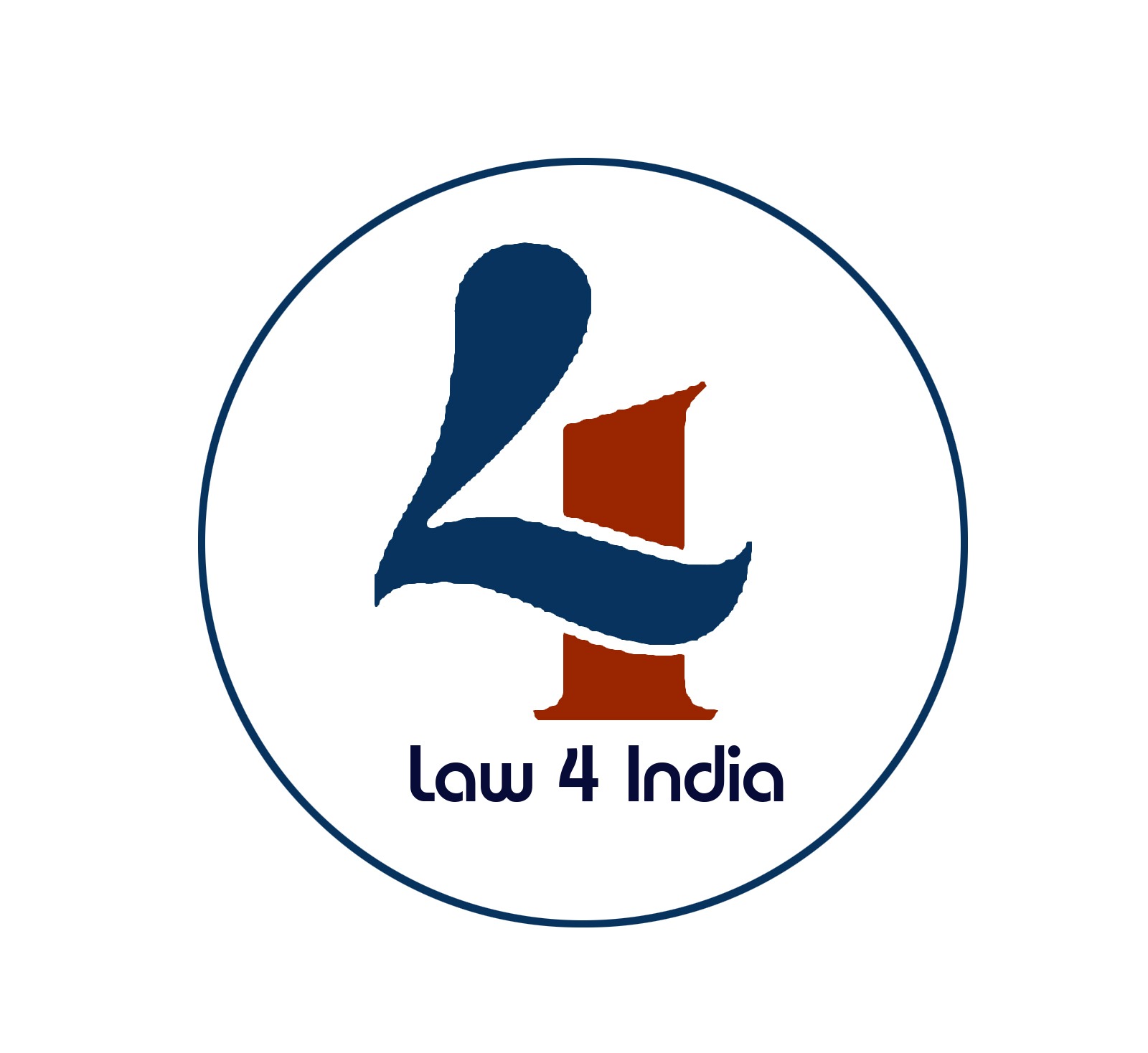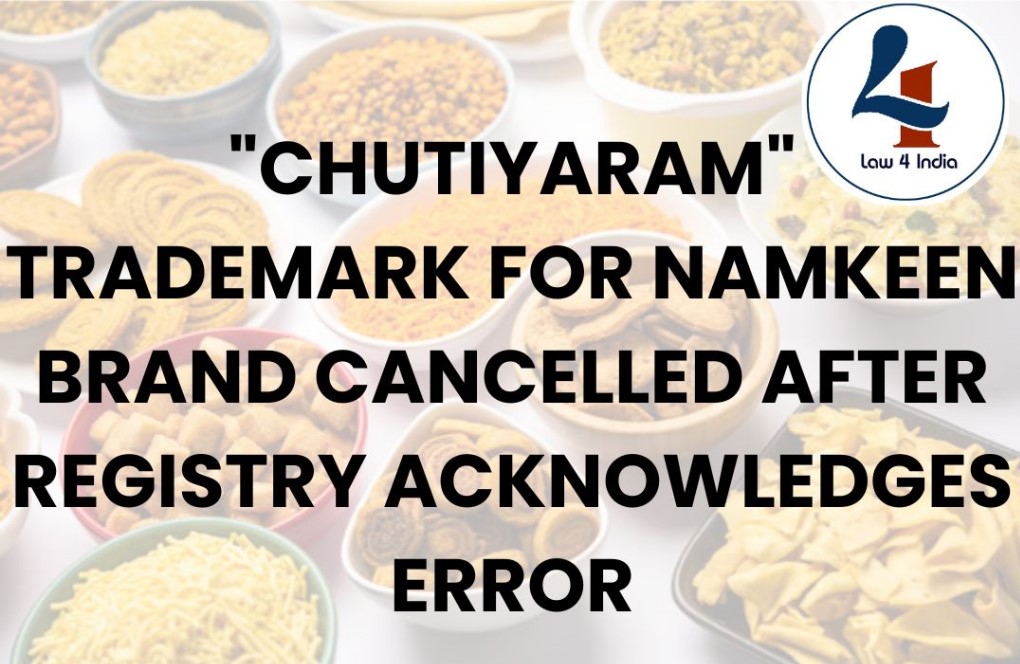-By Subhrodeep Maiti
Trademarks Registry Revokes Approval of ‘Chuutiyaram’ Trademark Following Controversy. Rejection of the trademark application Chu****ram after license controversy. The Trademarks Registry has revoked its approval of the application for “Chu****ram”, a trademark intended to label biscuit and Namkeen food products, after pistol who reviews the liability of the word capsules. Prior to the revocation, the Trademarks Registry, which is a unit within the Intellectual Property Office, approved the “Chu****ram” trademark.
Initial Approval and Subsequent Withdrawal
On March 4, 2025, the senior examiner of the registrar at the Trade Marks Registry granted the application for the mark “Chu****ram.” The examiner was of the opinion that the mark itself was two arbitrary words, “Chuti” and “Ram,” had a degree of distinctiveness, and was not used in relation to the goods for which it had applied, namely biscuits and namkeen. It registered because the examiner waived the objections for rejection under Section 9(1) of the Trade Marks Act, related to absolute grounds of refusal of registration of a mark.India Today
However, this acceptance did not endure. The Trade Marks Registry published an order on March 18, 2025, stating that the initial acceptance had been granted “through an error,” and that registration of the mark was subject to objection under Sections 9 and 11 of the Trade Marks Act, 1999. The absolute and relative grounds for refusal of registration are set forth in those sections, respectively. The order further noted that the Registrar had set a hearing date for the application and intended to revoke the acceptance under Section 19 of the Act, read with Rule 38 of the Trade Marks Rules, 2017.ABP Live
Concerns Raised by Intellectual Property Practitioners
Intellectual property lawyers were surprised when the “Chu****ram mark the Trade Marks Act” was initially accepted, especially given that the designation “Chu****ram” is very close to a vulgar and obscene Hindi slang word. Section 9(2)(c) of the Trade Marks Act states, in plain English, that an applicant cannot register a trademark if that trademark is scandalous, obscene or contrary to public morality; therefore, many were surprised to learn that this mark had not been measured against this aspect of the legislation. In addition, it was noted that the mark was accepted even though the applicant did not show up to the four hearings to represent the mark; that procedural mistake only compounded the situation, and raised ministerial questions about the integrity of the examination. Hindustan Times
Legal Provisions and Grounds for Refusal
Marks or indications that are exclusively standard marks or indications in the language of the day or in legitimate business practices of the day are always acceptable. Section 9(2)(c) particularly disallows certain words in a trademark for being scandalous or obscene. It is mostly because of the negative connotations of the word “Chu****ram” that the mark is refused. The grounds under the section “relative grounds for refusal” include actions surrounding earlier marks or rights. This expresses the comprehensive nature of trademark applications without being particularly relevant to this situation.
Procedural Aspects and Registrar’s Authority
According to the Trade Marks Act, even if an application for a trademark has been approved but not formally registered, it may still be revoked by the Registrar. Revocation takes place if the Tribunal, unless the mark is subsequently found to be unregistrable or if the acceptance was an error, in accordance with section 19 of the Act in conjunction with Rule 38 of the Trade Marks Rules, 2017. The Registrar exercised this power in this particular case and stated that the impression of acceptance was the original error in the first examination and proceeded to hold a hearing to receive arguments in regards to the objections. If the applicant does not attend the hearing, the order to accept the mark will be treated as “withdrawn”. India Today
Implications for Trademark Examination Procedures
This episode reminds us of some of the challenges and duties that are embedded into the trademark examination process. Examiners face the dual role of trying to accommodate the wishes of applicants, while at the same time safeguarding the public interest, and refusing marks that may be considered offensive. Relatively speaking, the acceptance of the word mark “Chu****ram” suggests a shift in that balance, and as such, provides reason to assess the trademark examination procedure. Over and above this, the larger implications of the conflict remind us of a need to be cognizant of language and culture when assessing trademarks. Because of the region’s linguistic landscape in India, we need to appreciate regional languages and slang so that we do not approve offensive marks in one linguistic context when they are also acceptable in another.
Conclusion
The withdrawal of the trademark application cited above represents the type of difficulties that can arise in the process of trademark registration. It serves to demonstrate the need for a process of review that is cognizant of the cultural and sociological impacts of a mark, as well as legal requirements to register the mark. This incident, could result in changes to the review process at the Trade Marks Registry, in an effort to avoid a similar incident in the future.

